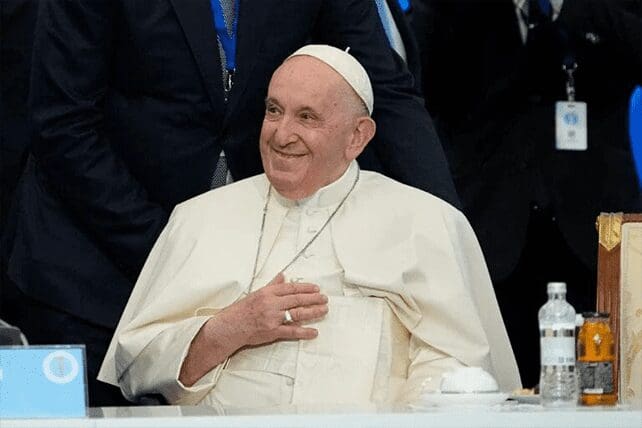VATICAN CITY (RNS) — In another step aimed at flipping the Catholic Church’s traditional top-down hierarchy, the Vatican has invited bishops facing immigrant crises in their dioceses to call directly on the church department in Rome charged with dealing with immigration issues — a section Pope Francis heads up personally.
The Dicastery for Promoting Integral Human Development, as it’s officially called, was created in 2016 when Francis combined the work of four pontifical councils. It deals not only with immigration but human rights, health, justice, disarmament and peace, the economy, work, the environment, refugees and migrants, and humanitarian emergencies.
Francis personally heads the migrants and refugee section of the department, signaling the importance of the issue to the pontiff, but also for the “quickness and flexibility needed to respond to situations that may arise,” said Sister Alessandra Smerilli, an economist and secretary to the department.
At a news conference at the Vatican on Thursday (Sept. 29), officials at the dicastery said they hope to “become a bridge” between local churches and dioceses.
Immigration, said Cardinal Michael Czerny, the discastery’s prefect, is “a good example of an issue where, if they bring it to us, we might offer direction on how to respond to it,” adding, “It’s up to them to ask.”
The office, which includes only 50 full-time employees and a rather small cast of project advisers, is assisted by a number of people working on the ground in Latin America, Asia and the United States who, Smerilli said, will help the department keep its finger on the pulse of what is happening around the world. “If we want to listen, not all the listening can happen in Rome,” she said.
“If there is a problem, like a large pollution problem that doesn’t look like a priority for that diocese, we simply reach out and ask for information.” The purpose is to “turn on a lightbulb,” she said, but “without substituting local authority.”
The dicastery will be divided into three sections: The first will focus on dialogue with local churches; the second will further research what comes out of those conversations, examining both the science behind the issues and the relevant doctrine of the church; the third will look for practical measures and issue documents.
In March, Francis released his apostolic constitution “Praedicate Evangelium” (“Preach the Gospel”), which outlined his reforms of the departments and offices that make up the Roman Curia and cemented the changes already underway. Reflecting his focus on service, rather than authority, the pope’s reforms are aimed at promoting synodality — a vision in which Catholicism’s hierarchy attends more closely to local churches and laypeople and their hopes for the church.
In 2020, Francis launched a massive consultation of Catholic parishes and organizations in preparation for a Synod on Synodality, a summit of global bishops at the Vatican in October 2023. Over the past year, Catholics have met in small groups to discuss their views on the church’s challenges. In recent months, those views have been gathered by national bishops’ conferences and forwarded to the Vatican.

